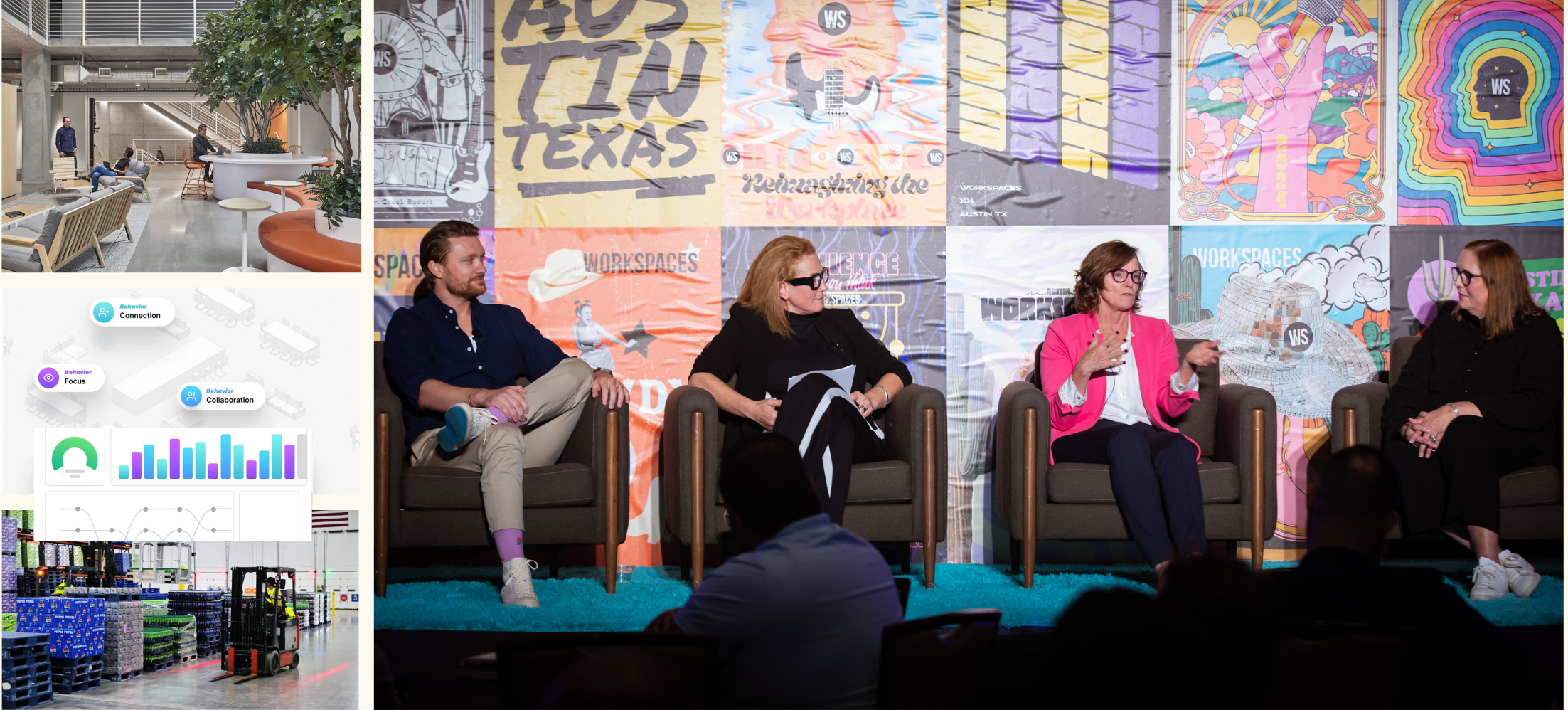Gone are the days when workplaces were merely buildings filled with desks and chairs. Today, the workplace is evolving into a thoughtfully designed experience, shifting from real estate to a user-centric product. At WorkSpaces, Liz Burow, Workplace Experience Insight and Innovation Advisor at ThinkySpace, facilitated a compelling discussion with workplace leaders Leah Bauer (Workplace Experience Designer, Workday), Deborah Whittemore (Senior Director, Strategy and Operations, PepsiCo), and Jeremy Moultrup (CEO of behavioral AI company Pangeam) on what it truly means to treat the workplace as a product.
Listening Deeply to Employees
Liz Burow set the stage, emphasizing that "a product makes something that people want and makes money too. It is desirable, user-centric in its development, feasible, and viable."
Leah Bauer shared how Workday uses a combination of approaches to gather insights, stating, "We're doing a lot of focus groups across different business centers and types of work," noting that understanding behaviors across various work environments, including remote settings and travel scenarios, is crucial.
Jeremy Moultrup explained how Pangeam uses physical AI to gather insights on workplace interactions. He described their method as "understanding anonymously how people behave and interact with their built environment," emphasizing that Pangeam measures "what are the actual behaviors taking place."
Deborah Whittemore, highlighting PepsiCo's diverse workforce, mentioned, "We focus on what we call the frontline experience. A lot of employees don't have computers because they're working on their line—they're making, moving, and selling." Alex, Deborah's colleague, further clarified, "What we like to say for communication to these employees is 10 different styles of communication, 10 different ways."
Small Changes, Big Impacts
The conversation then turned to innovation. Leah Bauer highlighted simple yet impactful adjustments at Workday, such as customizable lighting. "If I go into a phone room, we're looking at pilots where you can dim lights or change the temperature," Bauer explained, adding, "It's a small and not expensive adjustment but could make a world of difference for 10 to 20 percent of our workmates."
Moultrup recounted how a financial company's utilization of Pangeam’s insights led to reshaping their workspace. "They realized their people were way more social now," he noted. "Social lounges and amenity spaces became areas where people gravitated."
Whittemore provided real-world examples from PepsiCo's frontline workplaces, such as the profound impact of fixing a simple bathroom issue: "Once they got it fixed, productivity went up 80 percent."
Bold Moves and Big Bets
The panelists also explored bold strategies. Whittemore shared how PepsiCo creatively engaged employees by planting crops on their headquarters campuses. "We actually planted some of our product on the campus, like corn and potatoes," Whittemore said, demonstrating their seed-to-shelf vision. She elaborated further, explaining that this initiative was meant to remind employees of the foundational agricultural aspects of their products and to foster a deeper connection to their roles.
Additionally, PepsiCo launched a successful pop-up restaurant in New York City that featured creative culinary uses of their products, attracting enormous interest and participation. These bold and experiential approaches highlight how workplaces can transcend traditional boundaries to inspire and engage employees on a deeper level.
Data-Driven Decisions and Behavioral Insights
Data was recognized as essential, though often met with skepticism. Casey McCarthy, responsible for data platforms at PepsiCo, acknowledged, "We get people questioning the data literally every day." She emphasized the importance of making data relatable, stating, "We break the data down to a personal level of something they have themselves seen."
Moultrup underscored the necessity of deeper insights beyond basic occupancy, suggesting workplaces should evolve "from a Fitbit to a wellness app." He explained, "Data can highlight serendipity, social connections, and creativity—things significantly enhancing productivity and wellbeing."
Embracing the Future of Work
As workplaces navigate new realities shaped by hybrid models and evolving expectations, adopting a product-oriented mindset is crucial. Companies that listen deeply, innovate thoughtfully, make bold decisions, and harness meaningful data insights are poised to excel.
Burow concluded powerfully, stating, "If you want to modernize your workplace, there isn’t another way. Without a product mindset, you invite significant risk."
Watch the full discussion below…

Posted by
Join us at WorkSpaces!
The retreat for corporate real estate and workplace innovators.
Oct 4-6, 2026 | Santa Barbara, CA




-3.png)
-3.png)


-2.png)

Comments